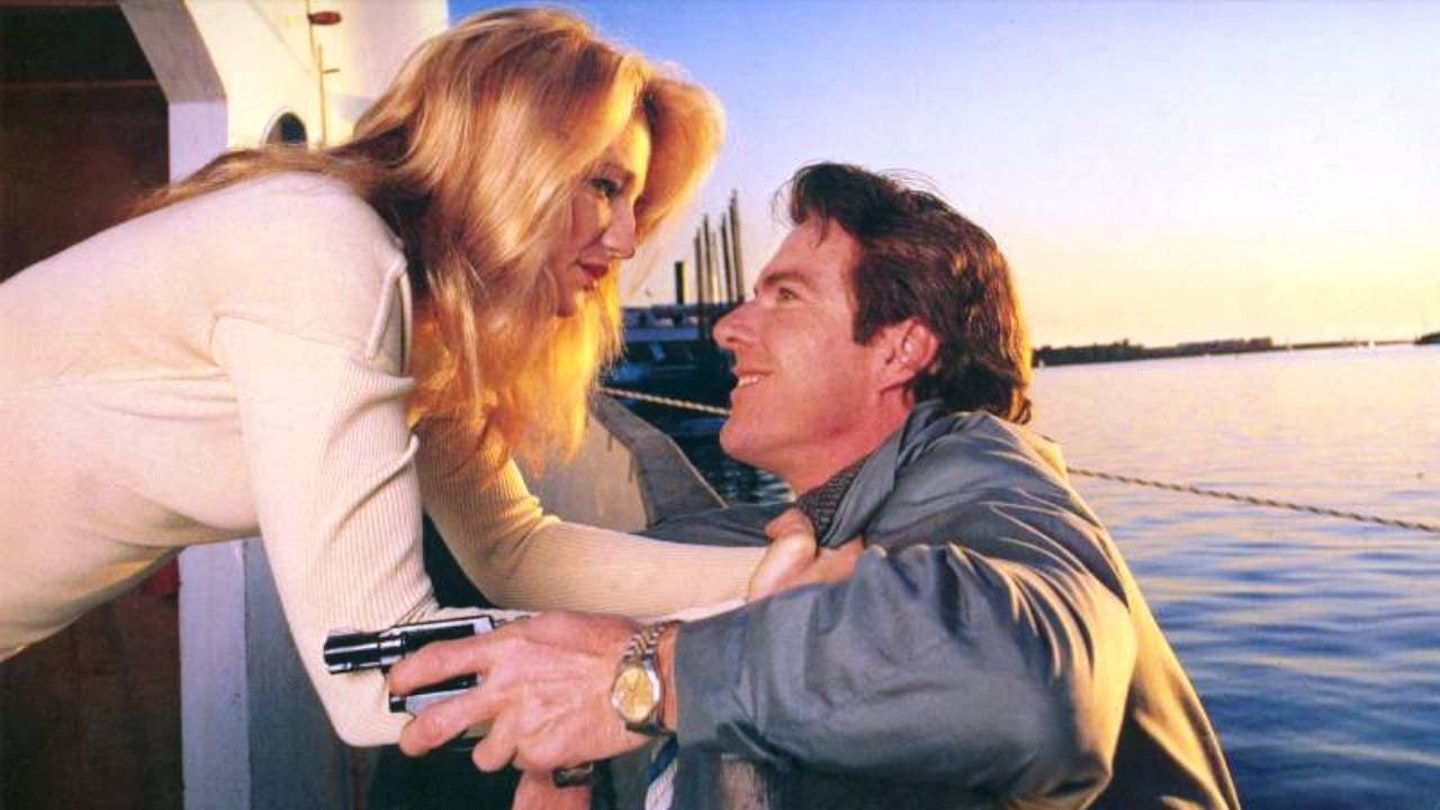This opens with a real grabber: under the credits, the camera swoops low over the Louisiana swamps while fast Cajun music plays, then zooms through built-up New Orleans at dead of night to come to rest on a corpse floating face-down in front of a mob-owned building. For four-fifths of its running time, The Big Easy is much better than the average cop movie: the script bristles with wittily tough talk, while fast-pattering Quaid works up a nice double act romance-feud with Barkin (his cheeky grin is well-matched with her lopsided smile).
It’s a funny, exciting, touching, sexy movie and climaxes several times with bravura sequences – a convincingly awkward love scene interrupted when a radio-pager sounds from a pile of discarded clothes, a nice bit of courtoom squirming as Quaid tries to get off the corruption hook, and expertly-edited outbursts of straight action.
However, the film falters in the home stretch, introducing a rather too-obvious surprise villain and reducing the initially-interesting plot to an over familiar set of betrayals and compromises. Originally scripted as Windy City, and set in Chicago, the film really works because of the locale change, allowing director Jim McBride, in his brief mainstream career between underground art (David Holzman’s Diary) and bland TV movies (Blood Ties), to take advantage of New Orleans’ picturesque architecture, great music (the soundtrack is outstanding), terrific food and convivial yet decadent atmosphere.
As in a run of late ‘80s films, big, genial John Goodman plays the sweaty sidekick who could be convicted of repeatedly trying to steal any scenes that aren’t nailed down.
